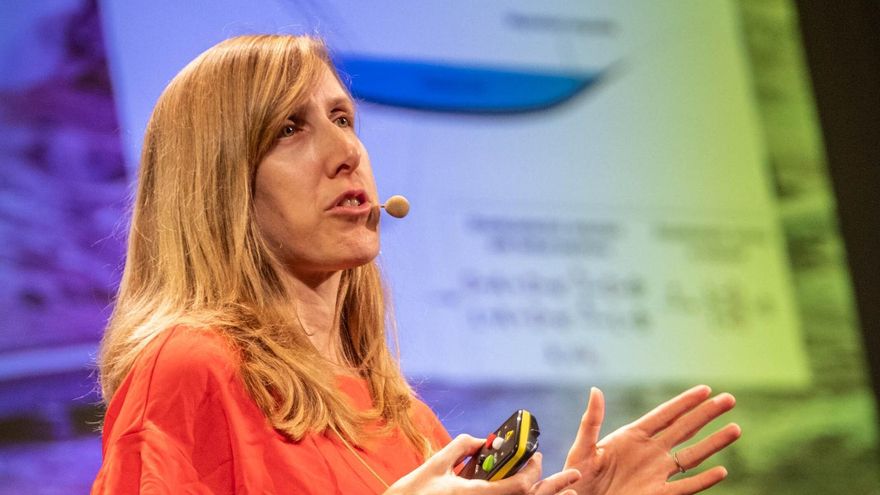The Stanford Formula for Global Excellence
What makes Stanford one of the best universities in the world today? Whenever you want to be at the forefront of your field, it’s crucial to “stay hungry,” as we say in the United States. Stanford has cultivated an environment that truly values innovation and thinking about how to make the world a better place. One of its greatest strengths is its interdisciplinary model, with top-ranked schools in every field—Engineering, Medicine, Law, Business, Humanities, and Sciences—all on the same campus. This interdisciplinary nature means researchers from different fields talk openly with each other about the various problems they face. A great deal of innovation springs from the convergence of these disciplines. Proximity to industry is another key factor, with many people actively working to bring new technologies into the real world.
Boosting Scientific Quality at the University of La Laguna
What does a university like the University of La Laguna (ULL) need to reach that level of quality? ULL already has incredible researchers and students. I have been deeply impressed by the scientific caliber of the people I’ve met this week. That said, I believe there are several things they can implement. One of them is courage—the courage to embrace the unknown and say, ‘it’s okay to try things we haven’t tried before.’ If you are too afraid of failure, you never attempt anything new.
It is also vital to ensure that ULL researchers get out into the world and share their work. While here, I’ve heard about all the amazing work these researchers are doing, but I don’t see ULL as well represented at other international conferences. We need to encourage people to travel, attend these global meetings, and connect with other researchers.
Canary Islands: A Hub for Disruptive Science
Does the Canary Islands have the resources to operate at such a high scientific level? Oh, absolutely! I have been here twice now and have participated in all the Shift conferences. I believe the Canary Islands has everything it takes to do disruptive science. And even if it didn’t have all the resources, sometimes working with limitations can help you become more creative. Being on an island makes you think, “How can I be creative with what we have to achieve the best possible work with the available resources?” I have been very impressed with the commitment to sustainability and how ingenious people have been with leveraging solar energy and chemical production.
The Crucial Role of Government in Supporting Science
Canarian science policy differs from that of the United States, which has sometimes been criticized for putting obstacles in the way of researchers. What do you think Spain should do to boost science? What the United States has done well since World War II is invest in science. Vannevar Bush, who helped found the National Science Foundation, spoke of science as “the endless frontier.” He talked about how investments in basic science can lead to truly advanced civilizations. It is essential to have policies and governments that support basic science, even if it’s not immediately clear how it will translate into a commercial product, because that is where some of the best innovations come from.
Navigating US Funding Cuts and a New Opportunity for Europe
How do you view the cuts being implemented by the Trump administration in the U.S.? It is certainly a challenging time, both because of government cuts and shifting funding priorities. I like to think that the U.S. has such a long history of supporting science and scientific innovation that it will help us withstand these difficult times. On the other hand, I think the current drift in government policy could be an opportunity for industry to step up and invest some of its money in basic science.
Do I think industry is ready to take that step? They are starting to. The challenge is that they must not only invest more in science but also ensure they don’t bias the outcomes. That is the risk of industry-funded science: they might only want certain results to come from the work.
Have you felt the impact of these cuts in your work? Yes, absolutely. We’ve had to apply for more grants from more diverse sources. But even when grants haven’t been cut, they have been delayed. There have been as many cuts to government agencies as there have been delays in grant disbursements. That delay has a huge impact because if you don’t receive funding for six months, it affects the speed at which science can progress. It will take the U.S. some time to recover from this blow, but it’s also a tremendous opportunity for Europe to recruit scientists.
Europe’s Appeal: A Supportive Culture of Innovation
Has the thought of emigrating to Europe crossed your mind during this time? I think for my students, especially predoctoral and postdoctoral researchers, now is a unique time to come to Europe. This is the moment for Europe to capitalize on what is happening in the U.S. and really attract incredible talent. Personally, I was born and raised in the United States, and my family is there. But the truth is, I love the culture of innovation here in Europe. There is a community and a culture of mutual support that is perhaps distinct from the U.S., which often focuses more on individual success.

